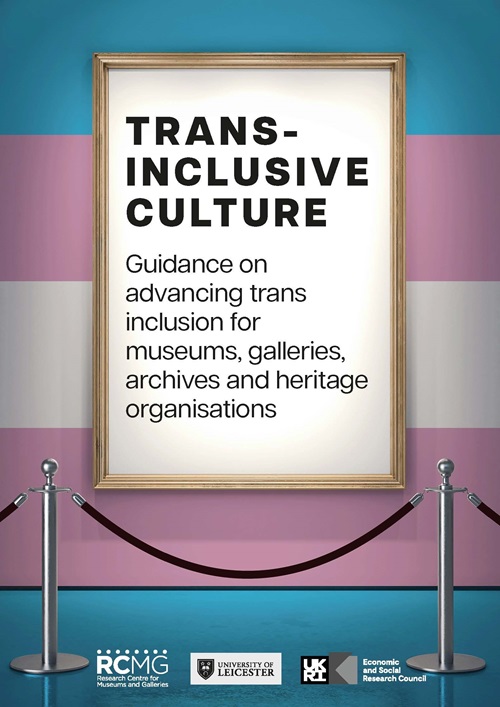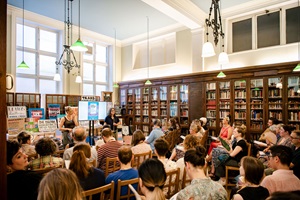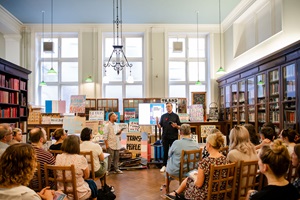- The Activist Museum Award
- Addressing the museum attendance and benefit gap
- Articulate
- Birmingham Museum Trust Vision
- Books connect 2
- Building inclusive museums
- Buried in the footnotes
- Cabinet of Curiosities
- A Catalyst for Change
- Advancing equity: Challenging embedded whiteness in London Museum
- The Cinematic Musée Imaginaire of spatial cultural differences [CineMuseSpace]
- Contested Desires Constructive Dialogues
- Cultural activity within historic houses
- Developing learning advocates in the East Midlands
- Developing learning advocates in the North West
- Developing new audiences and promoting social inclusion
- Disorder, dissent and disruption
- Encountering the Unexpected
- Engage, learn, achieve
- Engaging archives with Inspiring Learning for All
- Engaging the City
- Cultural value of engaging with museums
- Cultural value of engaging with museums
- EuNaMus
- Evaluating Creativity
- Everyone Welcome 2019-2021
- Everywhere and Nowhere
- Exceptional & Extraordinary
- EXILE at Kingston Lacy
- Generic learning outcomes
- girl.boy.child
- Growing social role of botanic gardens
- HumanKind
- Impact of generic learning outcomes
- Imperial War Museum North
- Including Museums
- Inspiration, identity, learning: the value of museums
- Inspiration, identity, learning: the value of museums, second study
- Leaders in Co-creation?
- Learning impact research project
- Learning through Culture
- The Madonna of the pinks
- Making Meaning in Art Museums 1
- Making Meaning in Art Museums 2
- Mapping the change phase 2
- Mindful Museum
- Mirror
- Museu do Samba, Brazil
- Museums and an ageing population
- Museums and social inclusion: the GLLAM report
- Museums health and wellbeing
- Co-production Framework at National Museums Liverpool
- New Walk Museum vision
- Not for the likes of you
- Open House
- Open minds
- Participatory practices at the Science Museum
- Permissible Beauty
- Prejudice & Pride: exploring LGBTQ lives at the National Trust
- Prisoners, Punishment and Torture
- Redefining the Role of Botanic Gardens
- Research network to advance museum ethics
- Researching Learning in Museums and Galleries 1990-1999
- Rethinking Disability Representation
- shOUT
- Small museums and social inclusion
- Stories of a Different Kind
- Supporting Decolonial Futures
- Talking statues
- TCS project
- The Museum as a Space of Social Care
- The Queer Heritage and Collections Network
- Their Past Your Future 2
- Seeing the museum through the visitors’ eyes
- Trans-Inclusive Culture
- Museums and the Transgender Tipping Point
- Unfinished portrait at Felbrigg Hall
- “In the past we would just be invisible”
- What did you learn at the museum today?
- What did you learn at the museum today? Second study
- Return to the start of the menu
- RCMG
-
Research archive
- The Activist Museum Award
- Addressing the museum attendance and benefit gap
- Articulate
- Birmingham Museum Trust Vision
- Books connect 2
- Building inclusive museums
- Buried in the footnotes
- Cabinet of Curiosities
- A Catalyst for Change
- Advancing equity: Challenging embedded whiteness in London Museum
- The Cinematic Musée Imaginaire of spatial cultural differences [CineMuseSpace]
- Contested Desires Constructive Dialogues
- Cultural activity within historic houses
- Developing learning advocates in the East Midlands
- Developing learning advocates in the North West
- Developing new audiences and promoting social inclusion
- Disorder, dissent and disruption
- Encountering the Unexpected
- Engage, learn, achieve
- Engaging archives with Inspiring Learning for All
- Engaging the City
- Cultural value of engaging with museums
- Cultural value of engaging with museums
- EuNaMus
- Evaluating Creativity
- Everyone Welcome 2019-2021
- Everywhere and Nowhere
- Exceptional & Extraordinary
- EXILE at Kingston Lacy
- Generic learning outcomes
- girl.boy.child
- Growing social role of botanic gardens
- HumanKind
- Impact of generic learning outcomes
- Imperial War Museum North
- Including Museums
- Inspiration, identity, learning: the value of museums
- Inspiration, identity, learning: the value of museums, second study
- Leaders in Co-creation?
- Learning impact research project
- Learning through Culture
- The Madonna of the pinks
- Making Meaning in Art Museums 1
- Making Meaning in Art Museums 2
- Mapping the change phase 2
- Mindful Museum
- Mirror
- Museu do Samba, Brazil
- Museums and an ageing population
- Museums and social inclusion: the GLLAM report
- Museums health and wellbeing
- Co-production Framework at National Museums Liverpool
- New Walk Museum vision
- Not for the likes of you
- Open House
- Open minds
- Participatory practices at the Science Museum
- Permissible Beauty
- Prejudice & Pride: exploring LGBTQ lives at the National Trust
- Prisoners, Punishment and Torture
- Redefining the Role of Botanic Gardens
- Research network to advance museum ethics
- Researching Learning in Museums and Galleries 1990-1999
- Rethinking Disability Representation
- shOUT
- Small museums and social inclusion
- Stories of a Different Kind
- Supporting Decolonial Futures
- Talking statues
- TCS project
- The Museum as a Space of Social Care
- The Queer Heritage and Collections Network
- Their Past Your Future 2
- Seeing the museum through the visitors’ eyes
- Trans-Inclusive Culture
- Museums and the Transgender Tipping Point
- Unfinished portrait at Felbrigg Hall
- “In the past we would just be invisible”
- What did you learn at the museum today?
- What did you learn at the museum today? Second study
Research Centre for Museums and Galleries (RCMG)
Trans-Inclusive Culture: Guidance on advancing trans inclusion for museums, galleries, archives and heritage organisations

In the context of growing uncertainty and anxiety surrounding trans-inclusive practice in the cultural sector, the University of Leicester’s Research Centre for Museums and Galleries (RCMG) – working with a team of legal scholars and experts in inclusion, equality and ethics – has developed guidance on advancing trans inclusion for museums, galleries, archives and heritage organisations. The development of the guidance was funded via the Economic and Social Research Council.
The guidance, intended primarily for anyone working with or in museums, galleries, archives and heritage, sets out an ethical framework to support cultural organisations to advance trans inclusion. It explains key components of UK law, as well as some of the limitations and complexities of the law.
Drawing on over 130 responses to a survey inviting cultural organisations and those who work with them to share the challenges they were encountering in their daily work, the guidance includes a series of scenarios with practical strategies and solutions designed to build skills, knowledge and confidence for anyone working in this area. Developed in full, the actions and strategies shared in the guidance will enable staff, volunteers, freelancers, leaders and trustees to work together to positively impact the experiences of trans individuals and communities.
This guidance is supported by the following culture sector organisations. Collectively they represent and advocate for thousands of museums, galleries, archives and heritage organisations and culture professionals; they recognise and award world-leading excellence; and they set standards, develop advice and guidance used by staff, volunteers, freelancers, trustees and cultural leaders across the UK and internationally to create inclusive experiences for many millions of visitors.
Acesso Cultura; Association of Independent Museums (AIM); Association of Leading Visitor Attractions (ALVA); Archives and Records Association (ARA); Arts Marketing Association (AMA); Engage; Fundación TyPA; Group for Education in Museums (GEM); The Heritage Alliance; Heritage Volunteering Group (HVG); ICOM ICME (International Committee for Museums and Collections of Ethnography); ICOM ICOFOM (International Committee for Museology); ICOM UK (International Council of Museums UK); ICOM ICFA (International Committee for Museums and Collections of Fine Arts); Kids in Museums; Museums + Heritage Advisor; Museums Association (MA); Office de cooperation et d’information muséales (OCIM) supported by the Ministry of Higher Education and Research and the University of Burgundy; South and East Museums Federation (SEMFed); Scottish Museums Federation (SMFed); and Yorkshire and Humberside Federation.
This guidance is supported by the UK Museums Association whose code of ethics sets out the key ethical principles and the supporting actions that museums should take to ensure an ethical approach to their work.

